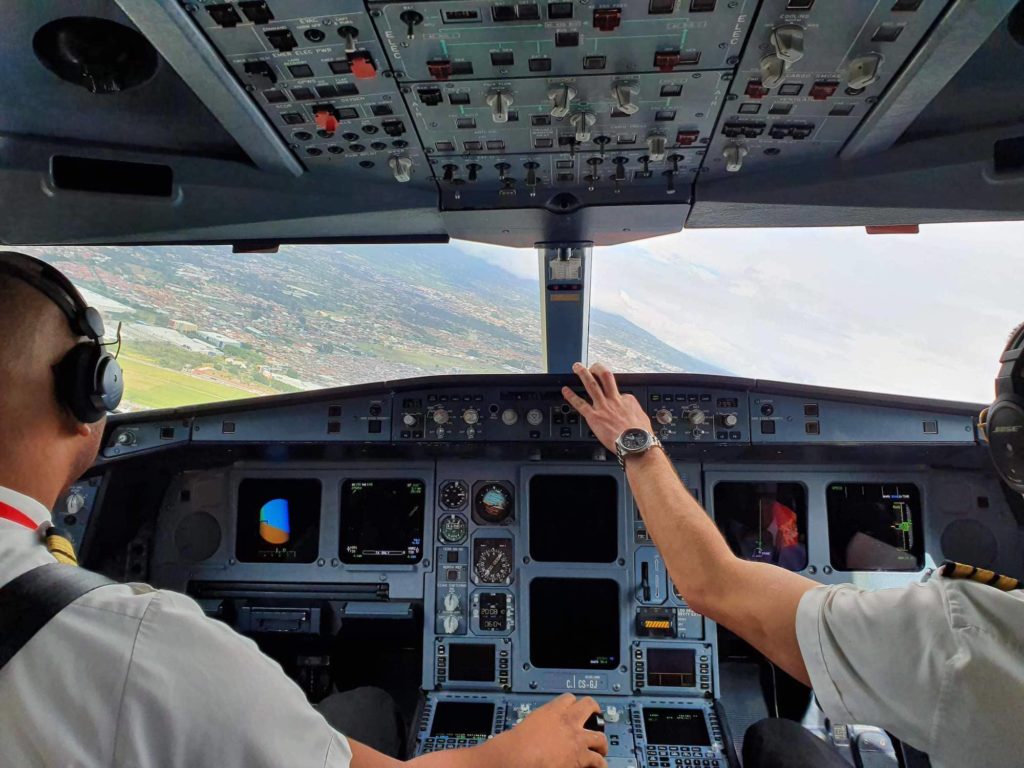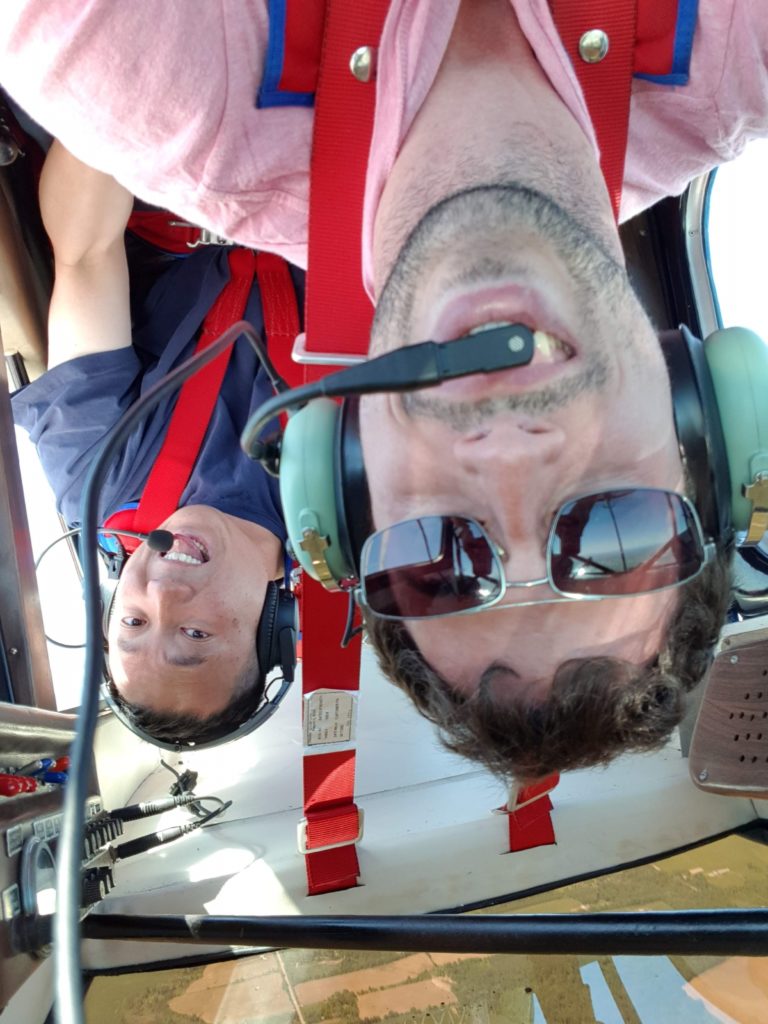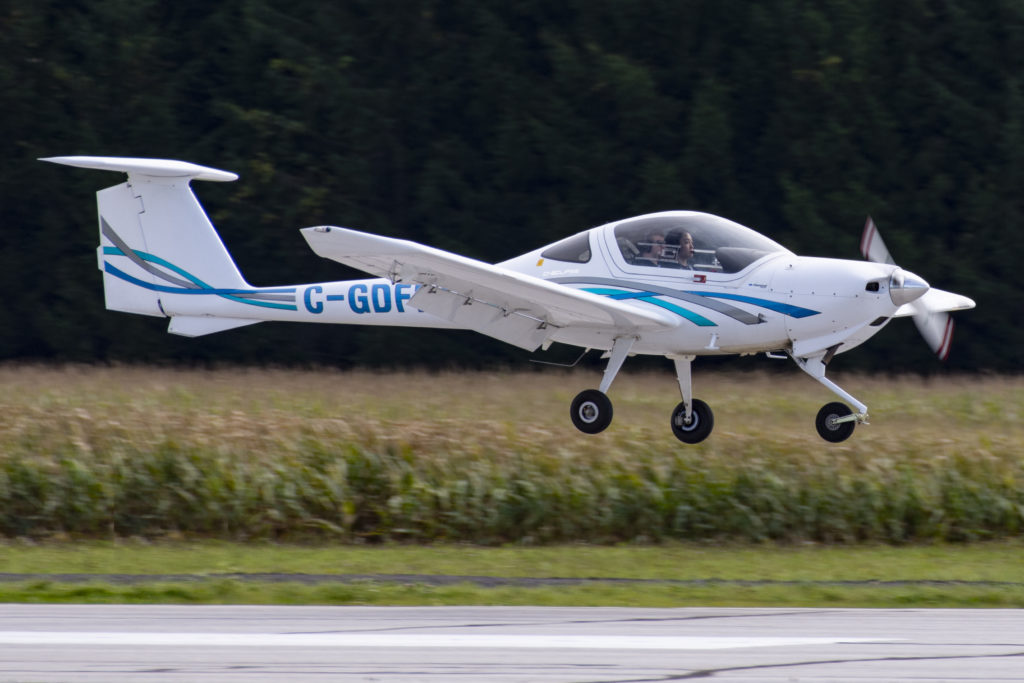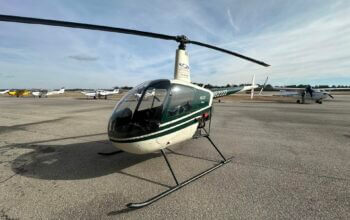Estimated reading time 10 minutes, 46 seconds.
The idea of launching an online flight training company was something Daniel Gustin, an Air Transat A330 first officer and experienced Class 1 aerobatic and aircraft instructor, had been mulling over for years. Having spent over 15 years in the cockpit, Gustin has commercial transport category experience with E190 type ratings, and teaches initial and recurrent simulator training on the Airbus A330. But after continuing to find deficiencies in pilot training, he wanted to make a difference.
He began using his instructor knowledge to create an online learning experience that hinged on a more student-focused education system – “flying the aircraft within the full flying envelope” while empowering a positive learning environment. His brand new flight training company, Canadian Flight Trainers (CFT), is the result.

After Gustin was furloughed in the spring of 2020, he had nothing but time. As an instructor, he stressed the importance of engaging in a mutually beneficial relationship with student pilots. Often, he said, the importance of an open-door policy supporting two-way communication is overlooked. Individual feedback allows for greater absorption of the learning material, which, in the end, is also a more cost-effective system.
“[Online students] show up to the airplane and they don’t know anything . . . and that is a huge problem,” he said. “[Virtual learning] is just an hour and space thing, it’s not competency-based, and it’s kind of hard to do competency-based using e-learning.”
With over 5,600 flight hours at the controls of 31 different aircraft types, Gustin decided it was time to put his knowledge and his genuine love of teaching to good use. He began working towards his master of education at a nearby university.
“I like doing instructor ratings,” he said. “Usually, these pilots just finished their commercial pilot’s license, and they can’t wait to be an instructor. They’ve been so conditioned in their 200 hours of training to fly a certain way, to abide by certain principles; and now when they’re in that position teaching stuff from memory, they don’t even know why they’re doing anything. When you start challenging these students, you see them develop as pilots . . . and as individuals using critical thinking.”

Gustin was five years old when he knew he wanted to become a pilot. A visit to the cockpit of a Boeing 747 progressed into “this underlying passion.” Straight from high school, he attended Toronto-based Seneca College’s four-year aviation technology-based degree program. In his final year, he earned his flight instructor rating.
His first job in the industry was with Sander Geophysics, where he participated in low-level survey work in a Cessna Caravan.
“We did physical survey work overseas. My first job . . . I was in Tanzania. It opened my eyes to various doors in aviation,” he said. “Aviation isn’t just [commercial] aviation. [It] can be flying a Caravan at 200 feet over giraffes and elephants. Aviation can be flying a floatplane into a lake in the middle of nowhere. Aviation can be aerobatics. It can mean instructing. There’s this narrow view of what a pilot is, and it can be so much more.”
Often people leave aviation because of this tunnel vision, not knowing “what they are capable of,” said Gustin. His goal is to coach students on a personal level, ensuring they see all potential routes — especially as the world recovers from the pandemic and opportunities in aviation begin to re-emerge.

Canadian Flight Trainers offers three online courses, including Private Pilot, Commercial Pilot and Flight Instructor Rating ground school.
The only prerequisite for the Private Pilot ground school is determination and passion. The Commercial Pilot online program offers an extra focus on human factors, self-care, threat and error management, CFIT, and winter operations training.
“Other online ground schools are lengthy, boring and lack a real connection with the realities we face as pilots,” he told ***Skies.*** “These lessons will help you be a more critical and sharper pilot.”
What sets CFT apart from other ground schools is its focus on the relationship between the instructor and the student. Gustin has spent the past year working with chief flight instructors and industry pilots to examine curriculum “and expose weak areas.” The winning ingredient is one-on-one access to instructors. Student success is supported with online communication tools such as the interactive forum.
CFT’s flight instructor rating course was created as part of Gustin’s university program, and requires students to present flight exercise lessons to a CFT flight instructor before earning a passing grade in the course. “We’re the first online ground school in Canada to require one-on-one time with students before they earn a letter of recommendation,” said Gustin, adding that he feels it’s the key to success for students.
For Gustin, his biggest pet peeve is testing in the form of multiple-choice questions.

“We incorporate different types of assessment tasks. Multiple-choice questions are the lowest form of assessment tasks; it encourages rote memory regurgitation, superficial learning behaviors, and they are nearly always inauthentic — and that’s not what we’re trying to do.”
CFT also has an examiner available to conduct ROC-A (Restricted Operator Certificate with Aeronautical Qualification) exams, which are operated through video conferencing.
The goal is to build a country-wide team to allow for almost 24-hour access to students across Canada. “[You] dial a phone number, and you have someone there right at your fingertips as part of the service to our students.”
And it’s not just the students who receive feedback. Gustin encourages his students also to provide constructive criticism. As industry experts who know exactly what the industry needs, his team of instructors aren’t just a “puppy mill”. . . “regurgitating what they’ve learned,” said Gustin.
“I want to do things differently. I don’t want people to come online and complain about how long our ground school is or how boring it is,” he said. “I don’t want people to think that we’re just reading off of slides. I want people to get value. But I also want to empower students and to take responsibility for what’s going on and encourage deep learning.”
CFT is also planning campaigns to help promote women in aviation and support mental health issues in the industry.
“There is a stigma surrounding the emotional well-being of pilots. Often, pilots refuse to seek help and continue to suffer in silence – this must change.” The company’s campaigns will promote awareness and opportunities for pilots to seek help, and encourage them to prioritize themselves over their employers.
Canadian Flight Trainers is an approved educational institution with Employment and Social Development Canada. A formal launch is planned for mid-2021.









Good for him! Great ingenuity.
Bravo Daniele!! Svaka cast